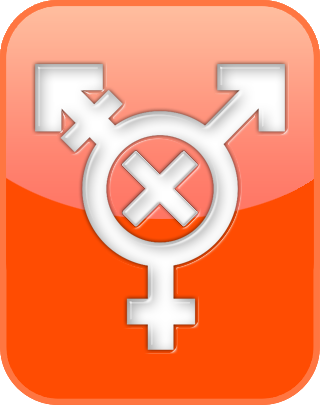Academically reviewed by Dr. Jennifer Schulz, Ph.D., associate professor of psychology
Internalized Transphobia Test
This internalized transphobia test, developed by Michael H. Miner and his colleagues at the University of Minnesota, seeks to measure internalized transphobia (that is, discomfort with one's transgender identity as a result of internalizing society's normative gender expectations). As such, the test is meant for individuals who are transgender.
In their research, Swinburne and colleagues found that the test exhibited excellent internal consistency and test-retest reliability.
Are you struggling with internalized transphobia? For each of the following statements, indicate how well it describes you below.
Question 1 of 28
I am like other people, but I am also special because I am transgender.
| Disagree | Agree |
NEXT
The IDRlabs Transphobia Test (for Transgender Individuals; IDR-TTT) was developed by IDRlabs. The IDR-TTT is based on the work of Dr. Walter Bockting, Ph.D. and his colleagues, who authored the paper “The Transgender Identity Survey: A Measure of Internalized Transphobia.” The IDR-TTT is not associated with any specific researchers in the field of psychopathology, social psychology, personality psychology, or any affiliated research institutions.
The IDRlabs Transphobia Test was informed by the survey on transgender identity as published in Bockting, W. O., Miner, M. H., Swinburne Romine, R. E., Dolezal, C., Robinson, B., Rosser, B., & Coleman, E. (2020). The Transgender Identity Survey: A Measure of Internalized Transphobia. LGBT health, 7(1), 15–27.
The test provides feedback such as the following: Self-Shame: Transgender people who struggle with internalized transphobia do not feel proud of their gender identity. As such, they may have internalized the negative effects of ridicule, bullying, harassment, rejection, and stigma associated with not conforming to society’s normative views of gender. People who are high in self-shame may experience psychological distress due to low self-esteem, embarrassment, and even guilt because of their gender identity. Hence, many feel lost and despondent when thinking about their gender, and they may think of being transgender as a burden.
Cisgender Aspiration: As a result of society’s transphobia, transgender individuals may feel strongly invested in passing as cisgender. Such individuals often feel that they will not be accepted and fear that they will be treated poorly if they do not conform to society’s gender binary. They do not feel valid, safe, or understood as transgender individuals, and they feel pressured to appear as a stereotype “man” or “woman.” Thus, they may often feel discouraged and unsafe when they are not perceived as cisgender. Indeed, they may view passing as cisgender as a standard by which to measure their happiness and success. Indeed, they may feel that looking like a cisgender person is a prerequisite for being accepted by others.
The work of Dr. Bockting and his colleagues has informed the criteria in the form of the widely known measure of internalized transphobia for clinical use, especially by qualified mental health professionals. The present test is intended for educational purposes only. IDRlabs and the present IDRlabs Internalized Transphobia Test are independent of the above researchers, organizations, and their affiliated institutions.
The internalized transphobia quiz is based on a peer-reviewed scientific paper for the assessment of the clinical concept of transphobia. However, free online tests and quizzes such as this one are solely first takes and cannot provide accurate assessments of your potential degree of internalized transphobia. Hence, the test is intended to be used for educational purposes only.
As the publishers of this free online internalized transphobia test, which allows you to screen yourself for the signs and symptoms of these beliefs, we have striven to make the test as reliable and valid as possible by subjecting it to statistical controls and validation. However, free online quizzes such as the present transphobia test do not provide professional assessments or recommendations of any kind; the test is provided entirely “as-is.” For more information about any of our online tests and quizzes, please consult our Terms of Service.
References
- Bockting, W. O., Miner, M. H., Swinburne Romine, R. E., Dolezal, C., Robinson, B., Rosser, B., & Coleman, E. (2020). The Transgender Identity Survey: A Measure of Internalized Transphobia. LGBT health, 7(1), 15–27.
- Bockting WO, Miner MH, Swinburne Romine RE, et al. (n.d.): Stigma, mental health, and resilience in an online sample of the US transgender population. Am J Public Health 2013; 103:943–951.
- Bradford J, Reisner SL, Honnold JA, Xavier J: Experiences of transgender-related discrimination and implications for health: Results from the Virginia Transgender Health Initiative Study. Am J Public Health 2013;103:1820–1829.
- Prajna Paramita Choudhury, Neetu S. Badhan, Joyti Chand, Sanjay Chhugani, Rashmi Choksey, Salman Husainy, Camillia Lui & Eric C. Wat (2009) Community Alienation and its Impact on Help-seeking Behavior Among LGBTIQ South Asians in Southern California, Journal of Gay & Lesbian Social Services, 21:2-3, 247-266, DOI: 10.1080/10538720902772196
- Hendricks ML, Testa RJ: A conceptual framework for clinical work with transgender and gender nonconforming clients: An adaptation of the Minority Stress Model. Prof Psychol Res Pract 2012;43:460–467.

